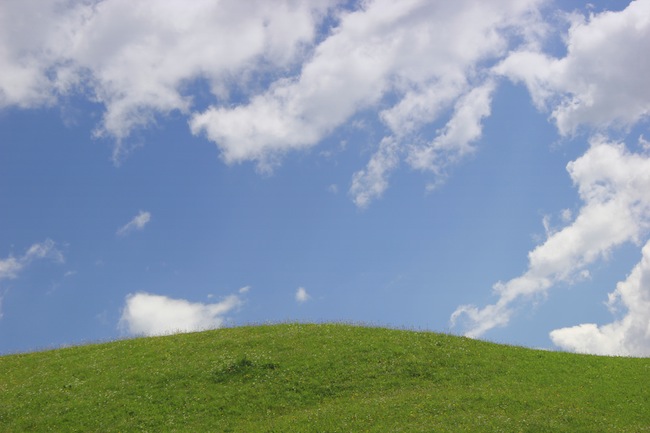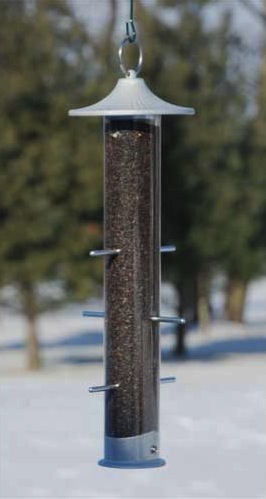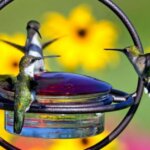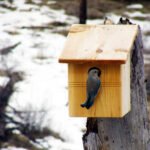
The other day I read the book “The Age of Miracles” by new author Karen Thompson Walker in which the Earth’s rotation inexplicably begins to slow down. The novel is quite compelling, especially in the way it shows the “slowing” through the eyes of a girl in middle school.
I’m writing about this because one of the early symptoms of the slowing of the rotation was the unexplainable (and very sad) mass die-off of birds. It made me think about what a world without birds would look like.
I’m hoping this post, which paints a birdless world, is not seen as depressing, but rather helps you develop a stronger appreciation for birds and the impact they have on your life and the overall environment.
If you woke up tomorrow morning in a world without birds, the first thing you’d notice would be the silence. They’ve become such a regular part of our mornings that most of us don’t even hear the birds’ chirps. They simply fade into the background. But without birds, the absence of vibrant singing would be notable.

For those who maintain a bird feeder, it would be desolate and empty—except for a few adamant squirrels perhaps. Nothing to feed at the parks, nothing to see soaring through the air, nothing colorful to photograph at wildlife refuges.
Aside from the personal joy birds bring to everyone who reads this blog (whether it’s through feeding, photography, watching, etc.), birds play a huge role in maintaining a delicate balance of life. I’ve identified some of the reasons why birds are so important in several of my past blog posts. Let’s start with the most basic aspect: protection of crops.
In the novel, once the birds vanished, mosquitoes, worms and spiders proliferated because their main predator was gone. While you might think this is simply a minor inconvenience to humans, it’s actually a bigger problem than you might think. By having more insects roaming the land as a result of no birds, crops will be ravaged by the amount of pests.
Even with birds, it’s estimated that insects consume up to 10 percent of industrialized nations’ crops and up to 25 percent of a developing nations’ gross national product. Without the widespread hunting of insect-eating birds—like bluebirds, wrens and chickadees—these numbers could expand exponentially, ultimately driving food prices through the roof. Nations may try to battle the insect problem with insecticide, but I don’t even want to imagine what type of harm that amount of poison on our food would do to us.
Then, after the realization that insects are roaming free, we also have to remember about all the animals that survive from eating birds—humans included. Most animals that eat birds, like weasels, spiders, wild cats, snakes and others, will have to adapt and may struggle to thrive. Commenters at another site who were pondering this same question pointed out that places like KFC and Chick-fil-A would have to close down as a result (which is not necessarily a bad thing).

Another aspect of the environment that will be rocked hard is the flora. Many species of plants depend on birds to pollinate flowers, spread seed and eat pests. Early last year, I wrote about how two species of birds heading toward extinction in New Zealand could also mean the extinction of the New Zealand Gloxinia in turn.
If you take this studied case on a remote island in New Zealand and extrapolate it to the whole world, it does not seem unreasonable to assume that countless plant species would also die off if birds suddenly disappeared. This could have unforeseeable cascading effects that significantly impact us. The loss of plant species could devastate ecosystems.
Still, other than these major world-changing consequences, there’s a whole host of minor things that would occur. For example, bird tourism would disappear and cause the loss of jobs and, in the case of the White-tailed Eagle, the loss of $12 million a year.
I guarantee I am missing some other notable aspects of what would happen in a world without birds, so please feel free to share your thoughts about what you think the world would be like.
And, to end on a positive note, you can rest assured that birds will likely be around for a very long time. However, that doesn’t mean you should take birds for granted. So grab your binoculars, head outside and appreciate them!




39 Comments
i can say one thing, that is solar turbines are pushed to be used instead of clean coal and fossil fuels say goodbye to the birds, goodbye to most food crops and plants and other animals. Say hello to a mass invasion of bugs, the birds main source of food because they won’t be here to eat them if the Democrats get their way and bribe farmers to put up them awful ugly turbines They kill millions of birds,. , it’s awful but no one talks about that… Sad to say not many do much until it’s too late…imagine a world without healthy food and Bill Gates in control of what we eat…help us Lord!
this really helped me understand
true